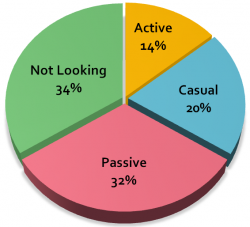Posting a job online is perhaps the first action most companies take to attract talent when they have an opening.
However, posting jobs in an attempt to attract qualified talent has many intrinsic flaws, and here are the top 4 in my opinion:
- Posting jobs a passive strategy
- Posting jobs offers no control over candidate qualifications
- Job advertisements only attract candidates who are actively looking
- Posting jobs isn’t social!
In comparison, sourcing from Internet, LinkedIn, online resume databases, ATS/CRM systems and similar resources to discover and identify qualified candidates is an active strategy which offers significant control over candidate qualifications, can be used to specifically target passive and even non-job seekers, and is 100 times more social!
Read on for a more in-depth analysis of posting jobs vs. sourcing candidates, as well as to have your eyes opened to a new way of looking at the value/ROI of posting jobs. Continue reading
Continue reading

